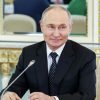 Rishi Sunak will travel to India next month for talks with Prime Minister Narendra Modi. Credit: Stéphane Rousseau/Getty Images
Rishi Sunak will travel to India next month for talks with Prime Minister Narendra Modi. Credit: Stéphane Rousseau/Getty Images
A multibillion-dollar free trade agreement with India is threatened by a dispute over UK demands for new restrictions on cheap generic drugs.
Indian negotiators reject UK demand about having drug patents extended before cheaper copies can be made, as a means of protecting the pharmaceutical giants' business from generic competitors.
It's another dispute dragging on the deal ahead of Rishi Sunak's trip to India next month for talks with the country's prime minister. , Narendra Modi. Kemi Badenoch, Minister of Commerce, is also in India this week trying to give political momentum to the discussions.
Disagreements over drug patents, as well as Indian demands for more visas for nurses and caregivers, dampened hopes of any early announcement. A final free trade agreement is thought unlikely before the end of the year, although there is a chance some parts of it could be announced before then.
This comes after a Covid vaccine maker launched on Friday AstraZeneca. lawsuit against the Joe Biden administration over a law that allows the US government to negotiate prices on behalf of members of the national health insurance program Medicare.
The measures are expected to save Medicare $100 billion by 2031 and are in response to public pressure to lower drug prices for patients who are usually elderly or disabled.
However, drug manufacturers complain that this will lead to lower profits and make it difficult to research new treatments.
British pharmaceutical group AstraZeneca, 40% of which comes from the United States, said it was forced to cut investments in rare diseases and cancer as a result of President Biden's legislation.
At the heart of Indian medicines The patent dispute is India's thriving generic drug industry, which is opposing British pharmaceutical prowess that has led to the development of world-leading drugs such as Covid vaccines.
Britain wants India to adopt the so-called TRIPS-plus. agreements that provide longer patent protection for medicines than normally applied under international agreements that India has joined, according to a leaked draft free trade agreement.
An Indian Ministry of Commerce official told The Telegraph that the Indian government is strongly opposed to the UK's demand for drug patent renewals and said it was unlikely that the UK would be able to include the demand in the final agreement.
p>  Commerce Minister Kemi Badenok, who is in India this week, received more than 120 letters calling for the proposals to be withdrawn. Photo: SAJJAD HUSSEIN/AFP
Commerce Minister Kemi Badenok, who is in India this week, received more than 120 letters calling for the proposals to be withdrawn. Photo: SAJJAD HUSSEIN/AFP
He said that the Indian government is «committed to protecting access to affordable medicines» and that it will not agree to any terms in the trade deal that would make it difficult for generic drug manufacturers in India.
< p> «We are still negotiating a trade deal and it is possible that the UK may withdraw its demand for a patent extension,» he said.
More than 120 health and human rights groups and experts wrote to Ms. Badenock this weekend urging her to withdraw proposals that they claim could jeopardize the supply of generic medicines beyond low- and middle-income countries. income, but also worldwide.
In their letter, health experts cited as an example the Indian Patent Office's decision this year to reject an attempt by Johnson & Johnson will renew the patent on its anti-TB drug Bedaquiline.
«This case has opened the way for other companies to make affordable generic bedaquiline, with some health experts believing the cost of treatment could be reduced by up to 80%,» experts said from 28 countries, from Italy and Thailand to India and Ghana. and Vietnam.
They added: “Depriving people of affordable medicines will increase health inequalities as only the richest people in our countries can afford these medicines. What's more, it will increase the financial burden on our already overstretched healthcare systems.”
Opponents of the UK proposal warn that it could have side effects in the UK. Four out of five medicines and preparations used in the National Health System are generics, a third of which are manufactured in India, which means that about one in four medicines are Indian unbranded versions.
However, officials in Ms. Badenock's business and the Department of Commerce have vehemently denied such claims.
“The National Health Service, its services and drug costs are not and have never been discussed in any trade deal. We will never accept provisions that would increase the cost of medicines for our National Health Service,” said a spokesman for the agency.
“The UK approach to intellectual property is to strike a balance between encouraging innovation and providing access to available medicines. the situation has not changed.”
As The Telegraph reported this week, India is also demanding more visas for nurses, caregivers and IT professionals as the price of a free trade agreement. However, British ministers have said that under the government's points-based immigration system for skilled workers, there will be no special treatment for Indians.


























































Свежие комментарии